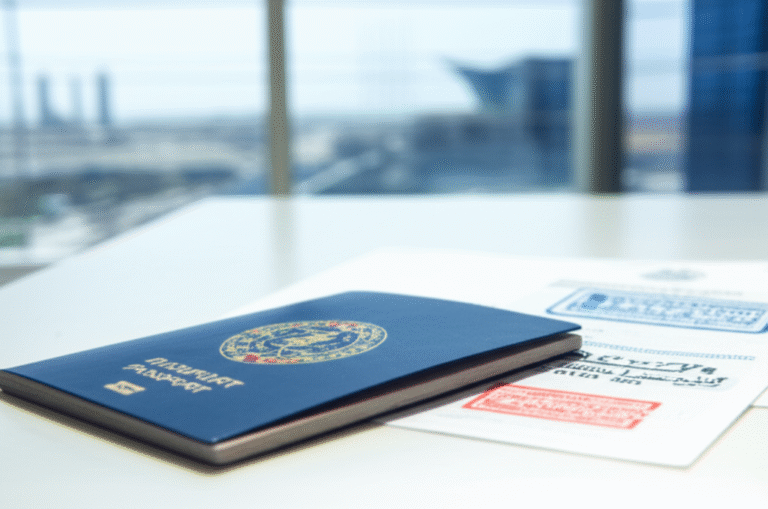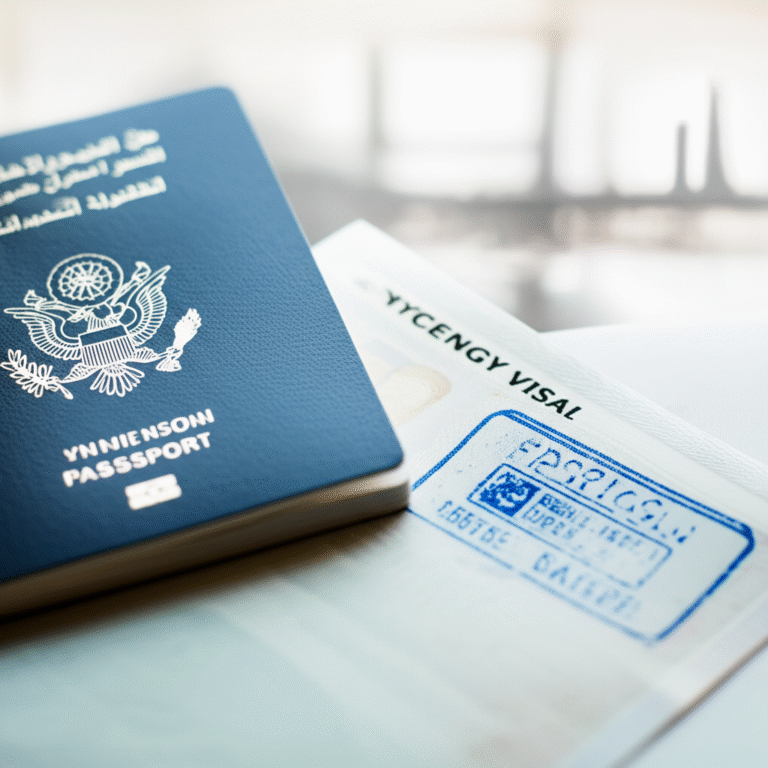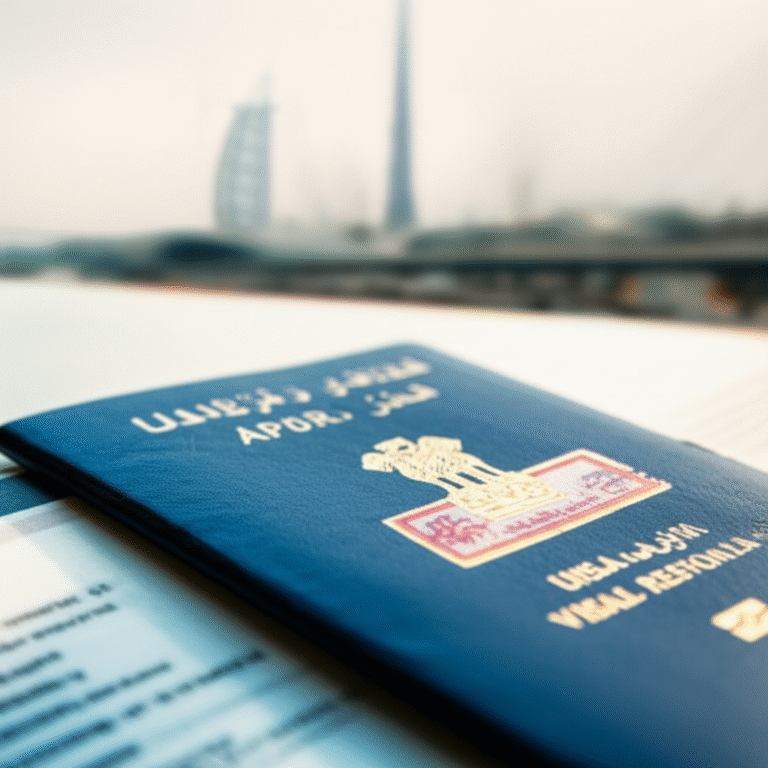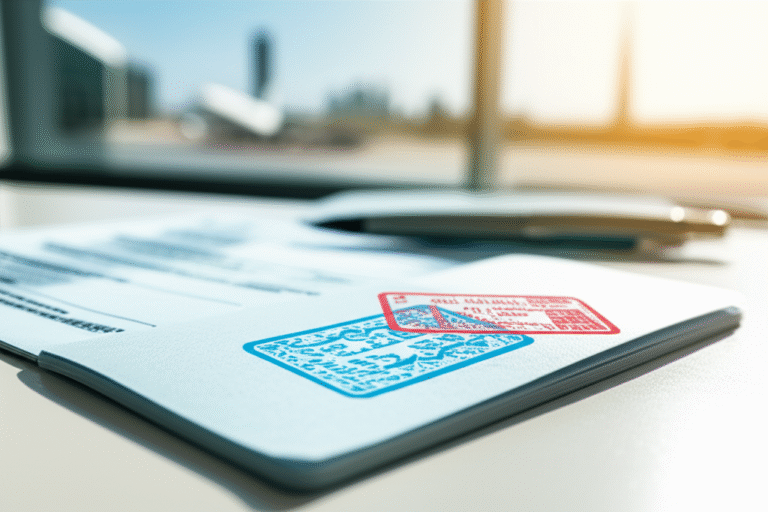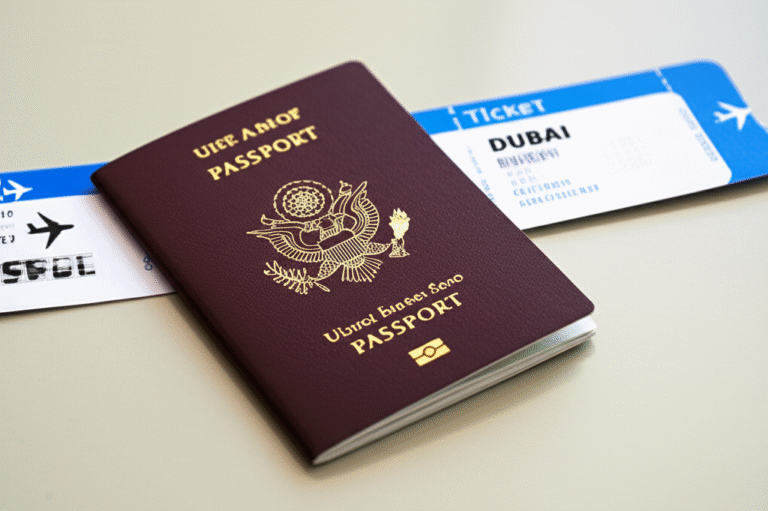How to Check Travel Ban in Abu Dhabi: Essential Guide

Quick Summary: Checking a travel ban in Abu Dhabi is straightforward. You can easily verify your status online through the Abu Dhabi Police portal or the MOJ UAE website, or in person at relevant government centers. This guide will walk you through each simple step, ensuring you travel with peace of mind.
Planning a trip from Abu Dhabi, or perhaps returning to the UAE, should be an exciting prospect! But sometimes, a nagging question can pop up: “Could I be facing a travel ban?” It’s a thought that can cause a lot of worry, especially if you have important travel plans or family waiting. The good news is that checking your travel ban status in Abu Dhabi is much simpler than you might think. Many people worry about this, but with a little guidance, you can get a clear answer quickly and easily. Let’s demystify the process together, step by step, so you can relax and look forward to your travels!
In This Article
- 1 Understanding Travel Bans in Abu Dhabi
- 2 Methods to Check for a Travel Ban in Abu Dhabi
- 3 What to Do If You Have a Travel Ban
- 4 Tips for a Smooth Travel Ban Check
- 5 Frequently Asked Questions (FAQs)
- 5.1 Q1: How long does it take to lift a travel ban once resolved?
- 5.2 Q2: Can I check a travel ban for someone else?
- 5.3 Q3: What if I find out about a travel ban at the airport?
- 5.4 Q4: Are there any fees to check my travel ban status?
- 5.5 Q5: I have unpaid traffic fines. Can this lead to a travel ban?
- 5.6 Q6: What is UAE Pass and do I need it?
- 6 Conclusion
Understanding Travel Bans in Abu Dhabi
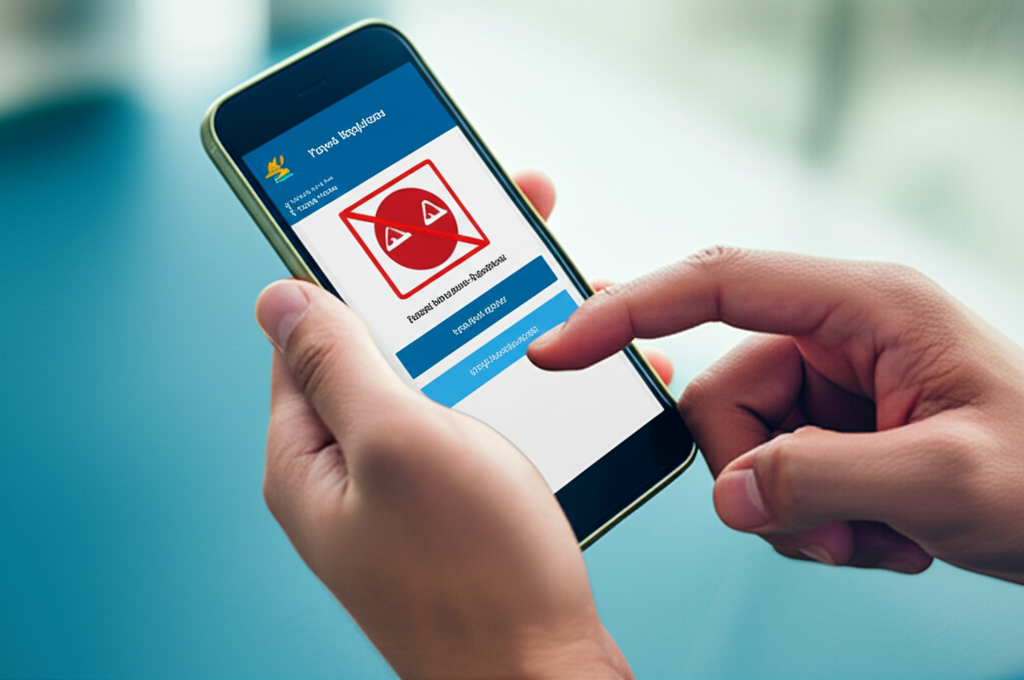
Before we dive into how to check for a travel ban, it’s helpful to understand what it is and why someone might have one. A travel ban, often referred to as a travel restriction or emigration ban, is a legal order that prevents an individual from leaving the UAE. These bans are typically imposed by courts or government authorities for various reasons. The most common reasons include:
- Outstanding Debts: This is perhaps the most frequent cause. If you owe money to individuals, companies, or the government (like unpaid fines, rent, or loans), a creditor can file a case, and a court may issue a travel ban until the debt is settled.
- Legal Cases: If you are involved in an ongoing civil or criminal case, a travel ban might be imposed to ensure your presence for court proceedings.
- Unpaid Fines: Traffic fines or other government-issued penalties can sometimes lead to a travel ban if left unaddressed.
- Visa Violations: Overstaying your visa or violating immigration laws can also result in a travel ban.
- Criminal Convictions: Individuals convicted of certain crimes may be subject to travel bans as part of their sentence or bail conditions.
It’s important to remember that a travel ban is a serious matter, but it’s usually a temporary situation that can be resolved. The key is understanding the process for checking your status and taking the necessary steps if a ban is indeed in place.
Methods to Check for a Travel Ban in Abu Dhabi
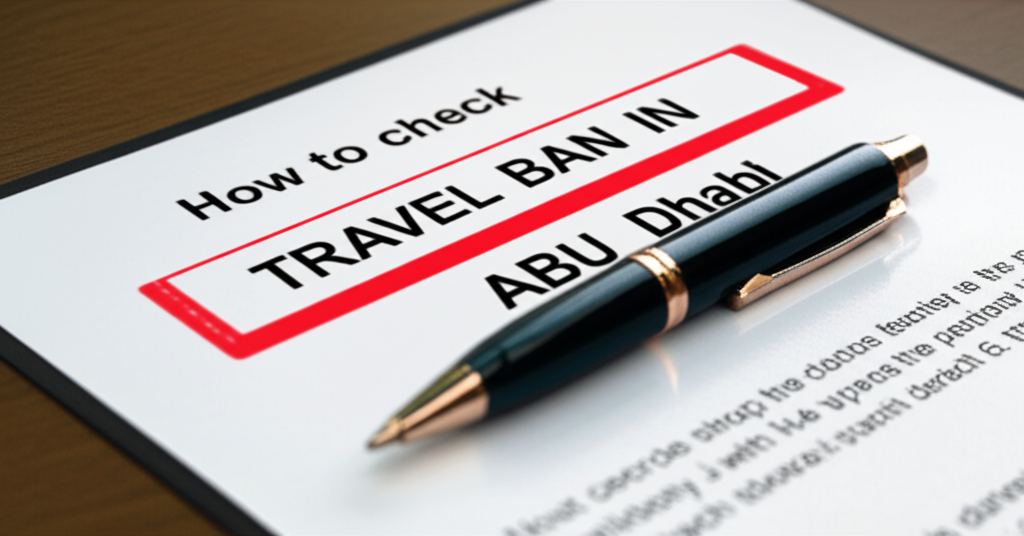
Fortunately, the authorities in Abu Dhabi have made it quite accessible to check your travel ban status. There are a few primary methods you can use, each convenient in its own way. We’ll explore the most common and reliable ones.
1. Online through the Abu Dhabi Police Portal
The Abu Dhabi Police (ADP) offers a user-friendly online service that allows you to check for any existing travel bans linked to your Emirates ID or passport number. This is often the quickest and most convenient method.
Steps to Check Online via Abu Dhabi Police:
- Visit the Official Website: Open your web browser and go to the official Abu Dhabi Police website. You can usually find this by searching for “Abu Dhabi Police” or by using the direct URL if you know it. Look for the services section.
- Navigate to the Relevant Service: On the Abu Dhabi Police website, look for a section related to “Services,” “Public Services,” or specifically “Traffic Fines” or “Criminal Services.” There should be an option to check for travel bans or search for individuals.
- Find the “Know Your Criminal Record” or “Travel Ban” Service: The exact name of the service might vary slightly. It could be under “Know Your Criminal Record,” “Personal Status Inquiry,” or a direct “Travel Ban Inquiry” link.
- Enter Your Details: You will typically be asked to enter your Emirates ID number or your passport number. Ensure you type this information accurately.
- Complete Verification (if required): Some services may require you to log in using UAE Pass or complete a CAPTCHA to prove you are not a bot.
- View Your Status: After submitting your details, the system will process your request and display your status. If there is no travel ban, it will usually state “No record found” or something similar. If a ban exists, the system should provide details about the issuing authority and potentially why the ban was issued.
Important Note: Ensure you are using the official Abu Dhabi Police website to avoid scams or unofficial portals. The official site is usually:
Abu Dhabi Police Official Website
2. Online through the Ministry of Justice (MOJ) UAE
The Ministry of Justice also provides an online portal that allows individuals to check for criminal cases and related travel restrictions. This is another official government channel for verifying your status.
Steps to Check Online via MOJ UAE:
- Access the MOJ Website: Navigate to the official UAE Ministry of Justice website. You can search for “Ministry of Justice UAE” or use the direct link.
- Locate the “Public Services” or “e-Services” Section: Similar to the ADP website, look for a section offering online services.
- Find the “Criminal Case Status Inquiry” or “Travel Ban Inquiry”: The specific service might be named something like “Inquire about Criminal Status,” “Personal Status Inquiry,” or a direct search for travel bans.
- Enter Requested Information: You will likely need to provide your Emirates ID number. In some cases, your passport number might also be requested.
- Authenticate (if necessary): You may need to log in via UAE Pass or complete a security check.
- Review Results: The portal will display information about any active criminal cases or legal restrictions, including travel bans. If no restrictions are found, it will confirm as such.
The Ministry of Justice website is a crucial resource for legal inquiries in the UAE. You can find it at:
Ministry of Justice UAE Official Website
3. In Person at Government Service Centers
If you prefer face-to-face assistance or are having trouble with the online portals, you can visit a government service center in person.
Where to Go:
- Abu Dhabi Police Customer Service Centers: Many police stations have dedicated customer service areas where you can inquire about your personal status, including travel bans.
- Tamm Centers: These are integrated government service centers that offer a wide range of government services under one roof, including those related to police and judicial matters.
- Ministry of Justice Offices: You can also visit a local office of the Ministry of Justice.
What to Expect:
- Gather Necessary Documents: Bring your original Emirates ID and passport.
- Visit the Center: Go to one of the designated service centers during their operating hours.
- Request Assistance: Inform the customer service representative that you wish to check for a travel ban.
- Provide Information: They will ask for your identification details to check the system.
- Receive Information: The officer will be able to tell you if a travel ban is active and provide details if necessary.
This method can be helpful if you need further clarification or assistance with the process.
What to Do If You Have a Travel Ban

Discovering you have a travel ban can be unsettling, but it’s not the end of the road. The key is to understand the reason for the ban and take appropriate steps to resolve it.
1. Understand the Cause:
The first step, as indicated by the online portals or in-person inquiries, is to identify why the ban was issued. Was it for debts, a legal case, or unpaid fines?
2. Settle Debts or Fines:
If the ban is due to financial obligations, you will need to settle the outstanding amounts. This could involve paying:
- Monetary judgments from a court.
- Unpaid loans or credit card debt.
- Outstanding rent or utility bills.
- Traffic fines or other governmental penalties.
Once the debt is paid, you will need to obtain proof of settlement. This documentation is crucial for proving to the relevant authorities that the obligation has been met.
3. Address Legal Cases:
If the ban is related to an ongoing legal case, you must address the case itself. This typically involves:
- Appearing in court as required.
- Consulting with your lawyer (if you have one) to understand the proceedings.
- Cooperating with the legal process to resolve the case.
The travel ban will usually be lifted once the court or relevant authority is satisfied that the legal matter has been resolved or that your presence is no longer critically required for ongoing proceedings (e.g., if bail conditions are met).
4. Obtain a Travel Ban Release Order:
After settling debts, fines, or resolving legal matters, you will need to formally request the lifting of the ban. This often involves submitting proof of settlement or court orders to the relevant judicial or police department that issued the ban.
It might take some time for the system to update after the ban is lifted. It’s advisable to re-check your status a few days after you believe it has been resolved.
Tips for a Smooth Travel Ban Check

To make the process of checking for a travel ban as smooth as possible, here are a few helpful tips:
- Use Your Official Identification: Always use your valid Emirates ID or passport number. Minor typos can lead to incorrect results.
- Be Patient with Online Systems: Sometimes, online portals can be busy or experience temporary glitches. If you don’t get an immediate result, try again later.
- Keep Records: If you are resolving a debt or legal issue, keep copies of all receipts, payment confirmations, and official orders.
- Seek Professional Help if Needed: If you are unsure about the process, especially regarding legal or financial matters, consult with a lawyer or a financial advisor specializing in UAE laws. Many legal firms offer services to help navigate travel ban resolutions.
- Check Well in Advance: If you have upcoming travel plans, don’t wait until the last minute. Check your travel ban status at least a few weeks in advance to allow ample time for any necessary resolutions.
- Be Wary of Unofficial Advice: Stick to official government websites and channels for checking your status. Avoid third-party services that claim to check for you, as they may be unreliable or scams.
Frequently Asked Questions (FAQs)
Q1: How long does it take to lift a travel ban once resolved?
Once you have settled the cause of the travel ban (e.g., paid a debt or received a court order to lift it), it can take anywhere from 24 hours to a few business days for the ban to be officially removed from the system. It’s always best to re-check your status after a few days to confirm.
Q2: Can I check a travel ban for someone else?
Generally, due to privacy laws, you can only check the travel ban status for yourself using your own Emirates ID or passport number. To check for someone else, they would need to authorize you or get the information themselves.
Q3: What if I find out about a travel ban at the airport?
This is a stressful situation. If you are informed of a travel ban at the airport, you will likely be prevented from traveling. You will need to contact the imposing authority (usually the police or judicial department) as soon as possible to understand the reason and the steps required to resolve it.
Q4: Are there any fees to check my travel ban status?
Checking your travel ban status through the official Abu Dhabi Police or Ministry of Justice online portals is typically free of charge. There might be fees associated with in-person services or if you need official documentation related to the ban or its lifting.
Q5: I have unpaid traffic fines. Can this lead to a travel ban?
Yes, significant unpaid traffic fines can lead to a travel ban. It’s always advisable to keep your traffic fines up to date. You can usually check and pay your fines through the Abu Dhabi Police website or app.
Q6: What is UAE Pass and do I need it?
UAE Pass is the first national digital identity for citizens and residents of the UAE. It allows you to securely access government services online. While many services allow you to proceed without it, using UAE Pass can streamline the process and provide a secure login for checking your travel ban status.
Conclusion
Navigating the possibility of a travel ban in Abu Dhabi might seem daunting at first, but as you’ve seen, the process for checking your status is quite accessible. By utilizing the official online portals of the Abu Dhabi Police and the Ministry of Justice, or by visiting a government service center, you can get clarity on your situation. Remember, the key to a worry-free travel experience is being informed and proactive. If a ban is in place, understanding the reason and following the proper steps to resolve it will help you get back to your travel plans with peace of mind. Travel safely!

